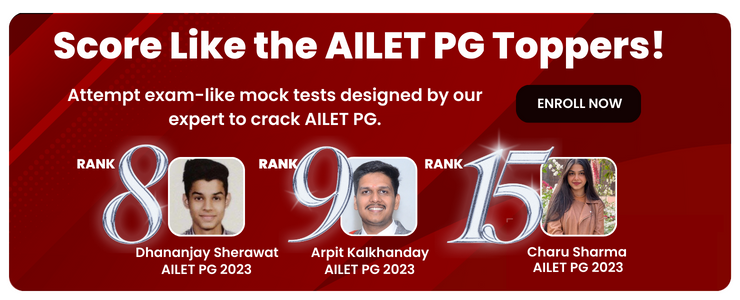How to Crack a PSU After CLAT PG
April 21, 2023
Reader's Digest: Did you know you can leverage the PSUs to obtain a lucrative job after your CLAT PG? If yes, then amazing. If not, dive into this blog and learn all the necessary details.
Are you a law graduate who's successfully cleared the prestigious CLAT PG Exam and now eyeing a rewarding career in Public Sector Undertakings (PSUs)? If so, you've come to the right place!
What are the PSUs, and why is it considered one of the best industries for Law Aspirants? You will know here
- What are the PSUs? PSUs are the industrial units managed by India's state or Central government.
- Why do PSUs pick students from a law background? PSUs require a legal representative who can manage the company’s legal requirements. Hence, they hire candidates from legal backgrounds.
- What is the selection process for PSUs? The process includes student selection via examination, followed by the Interview round.
- What is the eligibility to get into a PSU? You need to clear CLAT, and alongside that, you need 60% marks in LLB/LLM from a government-recognized University.
- Why are PSUs the best choice for a lawyer? PSUs have everything, from lucrative salaries to pension plans, and offer secure jobs to lawyers with fair opportunities for growth.
How to Crack a PSU After CLAT PG [Overview]
CLAT PG examination is not only a gateway for admission in the Top NLUs of India, but it can also get you some leading job roles in India's Public Service Undertakings (PSUs).
Conducted by The Consortium of National Law Universities (CNLU), CLAT PG is a competitive examination for Legal Studies. They conduct it offline, where you must attempt 120 questions in 2 hours. The medium of instruction is English, and the syllabus includes extensive legal questions from the LLB syllabus.
Upon Qualifying for this exam, you will get an opportunity to enrol in the leading National Law University. However, other perks of qualifying for CLAT PG include that you will become eligible to apply at the top PSUs of Jobs. Like any law, University CLAT PG works as the first stage of the selection process for recruitment in PSUs as well.
Understanding the PSUs
PSUs are the Industrial units where the State or the Central Government or Union government has the majority of its share (51%). These PSUs are massive, with thousands of staff at their threshold. Hence, this workforce/Unit requires a strong legal team to look after its legal affairs.
If you see that finding a job at PSU can lead to a promising career in terms of career and scope. Here you will get enough opportunities to grow your career by handling diverse legal issues and administering them to the best of your knowledge. It also offers a secure job option. However, you have to face head-on competition for this.
The CLAT PG Examination is considered the preliminary stage to recruiting the legal team for PSUs. Followed by a round of group discussions and Personal Interviews. Once selected, you will be offered the role of legal advisor, Law Executive, or law officer.
Preparing for the PSU Exam
So, what exactly do you need to study to crack the PSU Exam or the CLAT PG Examination because PSU accepts the current year's CLAT PG score for preparing the Merit list?
Also, it is important to understand the examination pattern and pick the right materials and resources for the preparation. Here, we have it all assembled for your reference.
Understanding the Syllabus and Exam Pattern
| Particulars | Details | Syllabus |
| Duration | 120 mins (2 hours). | Laws of Contract |
| Mode of Examination | Pen & Paper. | Torts |
| Questions type | Objective. | Property Law |
| Number of Questions to Attempt | 120 | Constitutional Law |
| Total Score | 120 | Tax Law |
| Marking Pattern | +1 for each right answer and -0.25 for each wrong answer. 0 for unattempted Questions. | Administrative Law |
| Language of Instruction | English. | Labor Law and Industrial Law |
| - | - | Environment Law |
| - | - | Family Law |
Recommended Study Materials and Resources
Here's the topper's pick for the preparation of the CLAT PG Examination because for the Interview round, they will not give any particular study material.
Hence, you need to make sure to keep your written examination up to the mark. That is ranked amongst the top 50 Qualified individuals.
| Titles | Author |
| Solved papers for LLM by Singhal | Singhal Law Publication |
| Universal Guide for LLM Entrance Examination | Gaurav Mehta |
| SS handbook for LLM (as per new pattern and syllabus) | Vishal Singh |
| Jurisprudence and Legal Theory Studies | Dr N V Paranjape |
| Ascent's Guide for LLM Examination | Ashok K Jain |
| Solved Handbook for LLM Entrance Examination | Singhal Law Publication |
Tips for Time Management and Exam Strategy
Identify the productive resources: Don’t gather unnecessary study materials, as it will only create confusion. Find the accurate and best materials from reputed coaching centres or your seniors.
Cover your UG syllabus in detail: CLAT PG picks most of the Questions from the UG-level law syllabus. So, if you have completed your UG syllabus intensively, the examination will be a piece of cake for you.
Divide your time between the preparation of the written examination and interview rounds: A rigorous practice for both written and interview rounds is important. So, make sure to give equal time to both of them.
Practice mock at regular intervals: Mocks at regular intervals help in keeping a regular track of how your performance is going. You can identify your weak and strong points and devise the strategy accordingly.
Treat PYQ as the primary preparation tool kit: Download the Previous Year’s Questions from the official website and practice it vigorously to understand the question types, the difficulty level, and how you can solve them as per your preparation.
Preparing for the Interview
Interviews make an integral part of the PSUs selection process. Once the merit list is prepared, you do need to go through 2 more rounds:
- Group Discussion.
- Face-to-Face Interview.
Acing the interview won’t be hard if you know how to get it done correctly. Here are some useful tips for you:
Understanding the Interview Process:
The Interview Process includes a call letter from the PSUs. Once you get it, you have to go to the GD round. Upon qualifying, the panel will interview you face-to-face for final selection.
Preparing for commonly asked questions:
Make a list of some of the commonly asked questions, like:
- Give a brief about your project.
- Why do you join PSUs instead of pursuing a law degree?
- Why do you think that our PSU needs a lawyer like you?
These are a few sample questions you can practice before your interview rounds.
Dressing and Body Language Tips
- Pick the best formal combination: White Shirt with black pants alongside a sleek tie is the best option.
- Keep your shoes polished, and your appearance should be neat and clean.
- Use mild Deo or Perfume to create a confident appearance.
- Don't use flashy accessories in your attire.
- Maintain a good body posture & Eye Contact.
Improving Your Chances of Selection
How can you increase your chances of selection over other candidates in a head-on competition with you? Here’s how.
Relevant work experience and internships: make sure to build a portfolio of experience by taking up internships and Part-time jobs in the relevant industry.
Networking and building professional connections: Create a connection with people having similar interests or have a connection with the PSUs. It can be achieved by networking at both the Virtual level: LinkedIn or the Ground level: workshops, seminars, etc.
Volunteering and extracurricular activities: Participate as a Volunteer with different NGOs or other social units. You can even participate in extracurricular activities like arranging academic sessions for kids or any other choice. It makes your CV more impressive and presents you as a socially aware individual.
Conclusion
You must have understood that you must crack CLAT PG alongside the Interview round to get into the PSU. You need to prepare for the same beforehand so that you don’t fall short in any aspect. Also, we believe that PSU Aspirants like you will not stop before they find success. Therefore, we wish you the same !!




SHARE